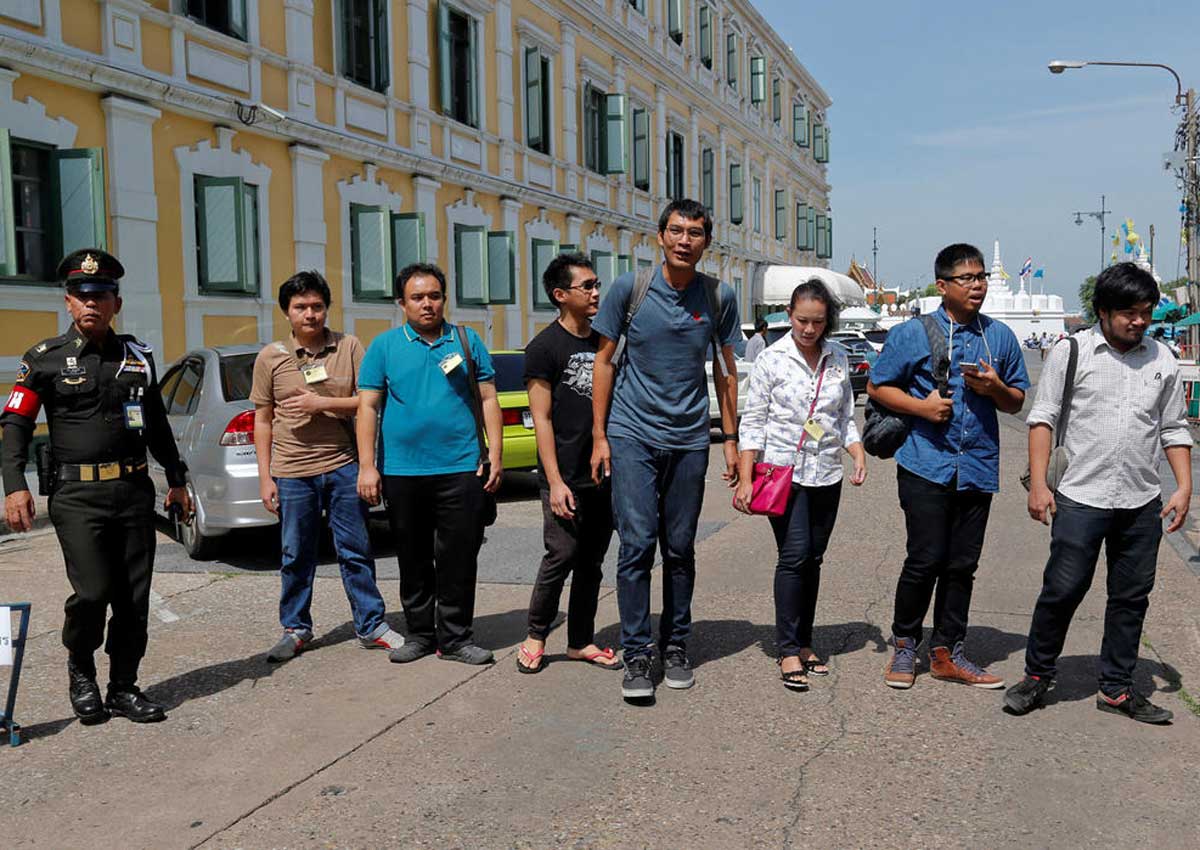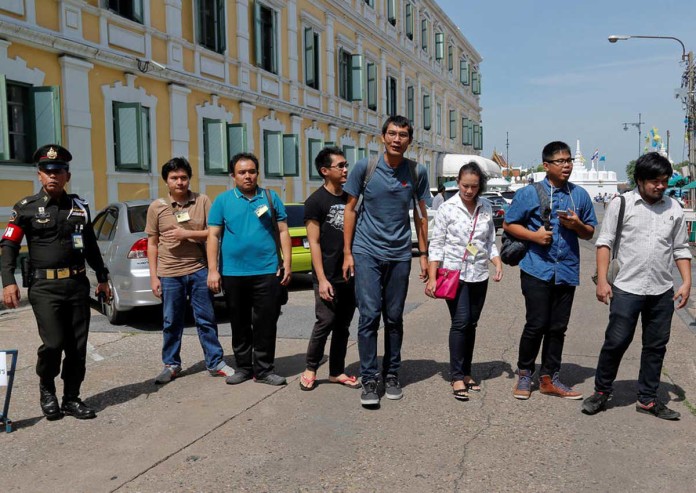Bangkok – Civilians accused of royal defamation and other security offences will no longer be tried in military courts, the junta said Monday, rolling back a heavily-criticised practice introduced after their 2014 coup.
Since the coup, breaches of a tough royal defamation law and other national security crimes have been punishable in military courts, presided over by a bench of officers.
Those courts have imposed severe sentences including record jail terms for civilians of up to 30 years for alleged lese majeste.
But on Monday the junta said an August referendum vote endorsing their new constitution has allowed them to ease their grip on the legal system – in a sign of the junta’s increasing confidence that it has its political opponents under control.
“For the past two years, the country has been in peace. People have co-operated in … the steps to reform which saw the peaceful referendum,” according to the order signed by junta leader Prayut Chan-O-Cha and published in the Royal Gazette.
With the new charter to soon come into effect, the junta is repealing three orders allowing for the trial of civilians in military court, the statement added.
Among other crimes, those orders covered allegations of lese majeste, sedition and possession of war weapons.
The changes come into effect immediately, but do not apply to civilians currently being processed by martial courts or offences committed before Monday’s edict.
That means dozens of people still face military justice.
For two years the junta had parried all calls by rights groups to end the trial of civilians in military courts, using them as a tool to control a restive country.
But Thailand’s junta has been pepped up by the referendum vote in favour of a charter they say will curb corruption and limit the power of greedy politicians.
Critics of the constitution say it hands the military long-term powers and will lead to greater division.
Thailand has been roiled by decades of political instability.
The latest chapter has unfolded since another coup in 2006 brought down billionaire ex-premier Thaksin Shinawatra.
His family and their parties have won all Thai general elections since 2001, angering the royalist military and their establishment allies who refuse to accept defeat at the polls.
The kingdom is beset by fears for the health of the ailing 88-year-old king Bhumibol Adulyadej, who is seen by many Thais as the only binding figure across a deeply divided country.
Experts believe the latest chapter of political upheaval is fired by competing elites desperate to secure their positions before the royal succession.






